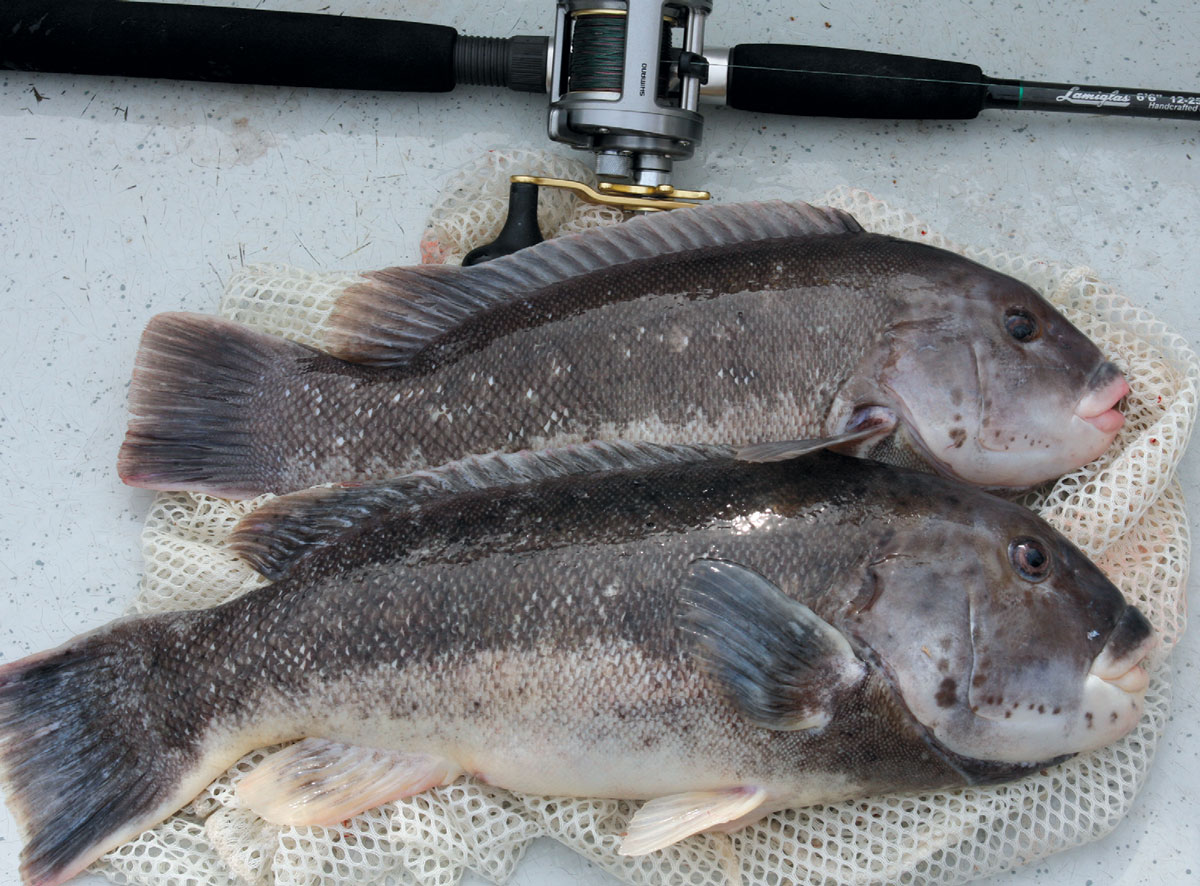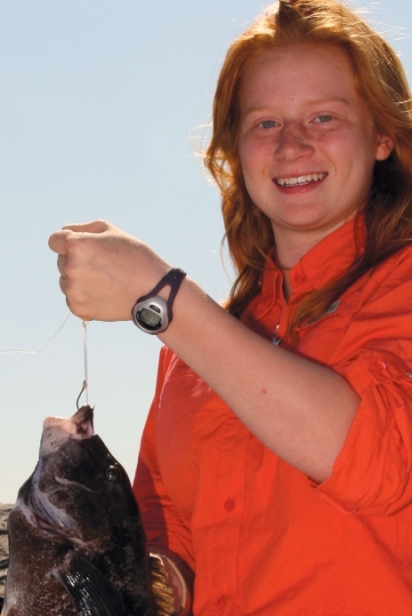Blackfish: Fishing for Tautog by Another Name
Happy Halloween. The jack-o-lanterns smile in the night. There’s smoke on your breath, a shiver in your arms. And the west wind blows so cold the weatherman doesn’t need to warn us about frost. This is blackfish weather.
The drop in water temperature triggers a response. Fish move—eat and run, tails beating, predators and prey, nature in action. Migrations are happening all around—herring, gannets, bluefin tuna, striped bass, crabs, blackfish, lobsters. In the air, in the water, on the bottom and at home too. From the living room to the chowder pot simmering on the stove, creatures start packing on their winter fat, moving toward warmth.
The meat of the blackfish, also called tautog, is ideal for chowders; it’s firm and holds up well under heat. And blackfish taste like what they eat—mussels, barnacles, crabs and lobsters, another reason why it’s known as the chowder fish.
In Rhode Island some of the best black fishing centers around Narragansett Bay between Whale Rock in Narragansett, Seal Ledge off Newport and the reefs around Sakonnet Point. The run begins up the Bay, on the rocky ledges off Warwick, Cranston and Fall River. Then the fish swim down the Bay, feeding as they go. Some follow the shoreline; others stay out in the deep channels.
Either way they tend to swim on hard bottom—reefs, jetty walls, oyster farms, cobbles, bridge pylons, the piers and docks that line the shore. By mid-November the blackfish have left the Bay and are on the reefs and rock piles and the many shipwrecks of Rhode Island Sound.
“We start blackfishing around Halloween and end sometime after Thanksgiving,” says Bryan Oakley, a friend and local geologist who knows a lot about reefs and rock ledges. He also knows a lot about blackfish. “Ever since I was a kid, I’ve gotten excited about going blackfishing. That’s what the fall means to me.”
The blackfish with their broad tails and their unlikely agility swim through the nooks, crags and crannies of a reef better than any other fish around here, fully born and designed to do it. A blackfish’s teeth can reduce a crab to shrapnel in seconds.
“We use crabs for bait,” says Oakley. “If you get a hit, don’t set too early. Too many people miss the strike because they set too early—or too late.”
A blackfish is not, say, like a bluefin tuna. Their bodies are completely different. The tuna is an endless swimmer, nervy, built for speed and distance. A blackfish will actually go to sleep at night, lying on its side between rocks. A blackfish will run a maximum of about 20 predictable miles, over and over again for many long years.
“Blackfish are stout fish. I’m stout,” Bryan says with a laugh. “Maybe that’s why I like them—they remind me of myself, a stocky fish that doesn’t travel far.” Bryan was born in Newport, went to University of Rhode Island, and now lives with his family in Wakefield.
“Plus, when you hook one of these fish, they don’t want to leave the bottom,” says Oakley. “They’ll pull like crazy trying to get back down—they are a blast to catch.”
A lot of fishermen have an odd respect for blackfish. Blackfish live a long time, upwards of 30 years. They grow slowly and reach sexual maturity late. They have a New England toughness to them.
Another aspect about blackfish that everyone knows, everyone who has caught them, is that blackfish can live a long, long time out of water, much longer than any other fish caught in Rhode Island waters. Many fishermen turn, in a way, sensitive or contemplative when filleting blackfish, as if the fish has pulled something deeper from them, a feeling or sensation nearer to what the ancients may have felt after a successful hunt.
Catch Your Own
The following charter boats all target Rhode Island’s fall blackfish run and sail from Point Judith.
Seven B’s V—Capt. Russ Ben; 401-789-9250
L’il Toot—Capt. John Rainone; 401-497-6683
Maridee II—Capt. Andy Dangelo; 401-788-6012
If you plan to fish on a charter or party boat then no fishing license is needed. Shore fisherman, however, will need to obtain one.
Visit www.saltwater.ri.gov .
The fall blackfish season begins October 16. Minimum size is 16 inches. The fall limit is eight fish per person, per day.
Visit www.dem.ri.com for more details.






